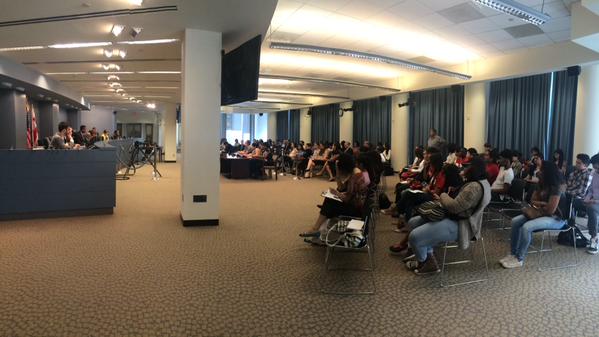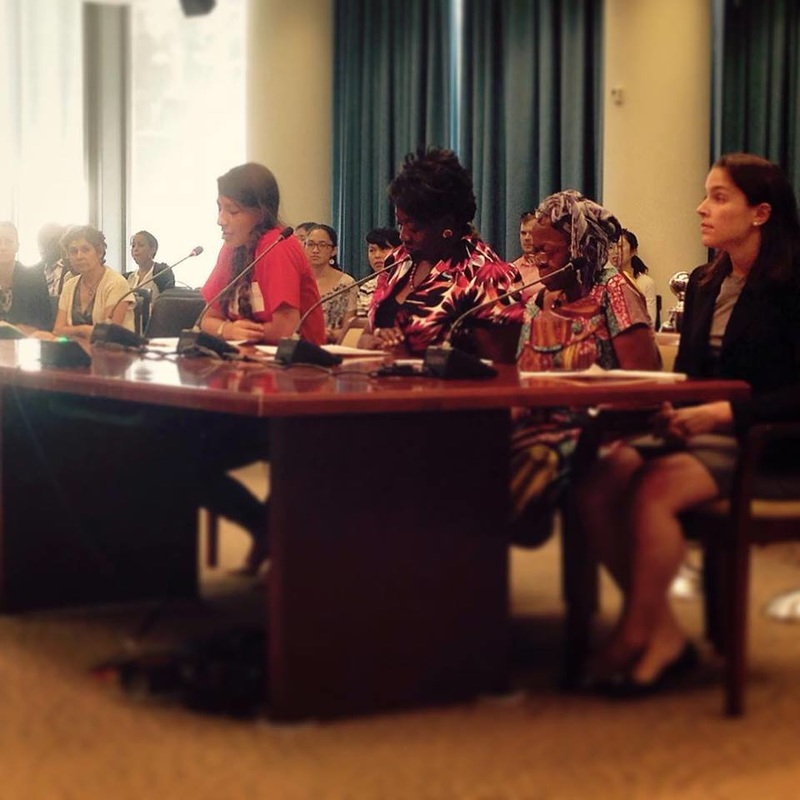|
More than 70 community members packed a hearing room in the Wilson Building last Wednesday and waited through hours of testimony for their turn to tell DC City Council their stories. The crowd represented a huge range of professions, backgrounds, languages, and ages – from Spanish-speaking attorneys, to Vietnamese-speaking student leaders, to French-speaking and Oromo-speaking community organizers. School principals waited alongside ESL students, and Executive Directors sat in line beside low-income housing residents, all with the shared goal of conveying the importance of language access to not only each of them, but to DC as a whole. Councilmembers serving on the Committee on the Judiciary, Committee on Education, and Committee of the Whole listened to testimony documenting the persistent barriers faced by community members who speak little or no English. Despite a groundbreaking bill co-authored by the DC Language Access Coalition and enacted into law 11 years ago, a pattern of flagrant violations of the rights enshrined in that law persist in DC, as evidenced by the multitude of experiences shared at the hearing. The Language Access in Education Act of 2015 aims to reduce those violations and significantly improve the state of language access in the District. Students from SMART, or Student Multiethnic Action Research Team, shared some of the formidable barriers they faced when entering the DC school system. One SMART member lacked access to even basic information at school: “During my first two years in high school I could not understand what the lunch staff were asking me. Sometimes I wouldn’t get lunch because I wouldn’t know how to ask for it.” -Mario, SMART Member Other SMART members detailed the frustration of lacking support systems, being unable to understand their teachers, counselors, nurses, and school administrators, and the educational setbacks they experienced as a result. Parents testified about barriers that prevent them from being involved in their children’s education. One mother described the ineffectiveness and miscommunications that resulted from her son’s school forcing her student to interpret communication between herself and her son's teachers. She had to simply leave one parent-teacher conference because her son did not know how to interpret what was being said “I was not able to ask questions as [my son] Jiovani did not know how to translate what he was saying, so we had to leave”. -Maria, ELL parent Service providers testified about the loss of benefits, time, and dignity that their clients routinely experience at DC agencies such as the Department of Human Services (DHS) when they have to wait long periods of time to be served, are treated rudely, or are outright denied services. While these actions are clearly illegal under the current law, the only enforcement mechanisms available now have proven ineffective. Despite the diligent work of many within the Office of Human Rights (OHR) - which is tasked with investigating and issuing corrective actions to agencies found to be breaking the law - multiple agencies simply continue to break the law without real consequence. OHR has issued multiple findings of language access violations to DHS, among other agencies, but these agencies continue to fail to provide interpretation, translated documents, and other vital services.
0 Comments
Leave a Reply. |
Archives
March 2016
Language Access BlogLocal, national and global updates about language access news. Categories
All
|



 RSS Feed
RSS Feed
